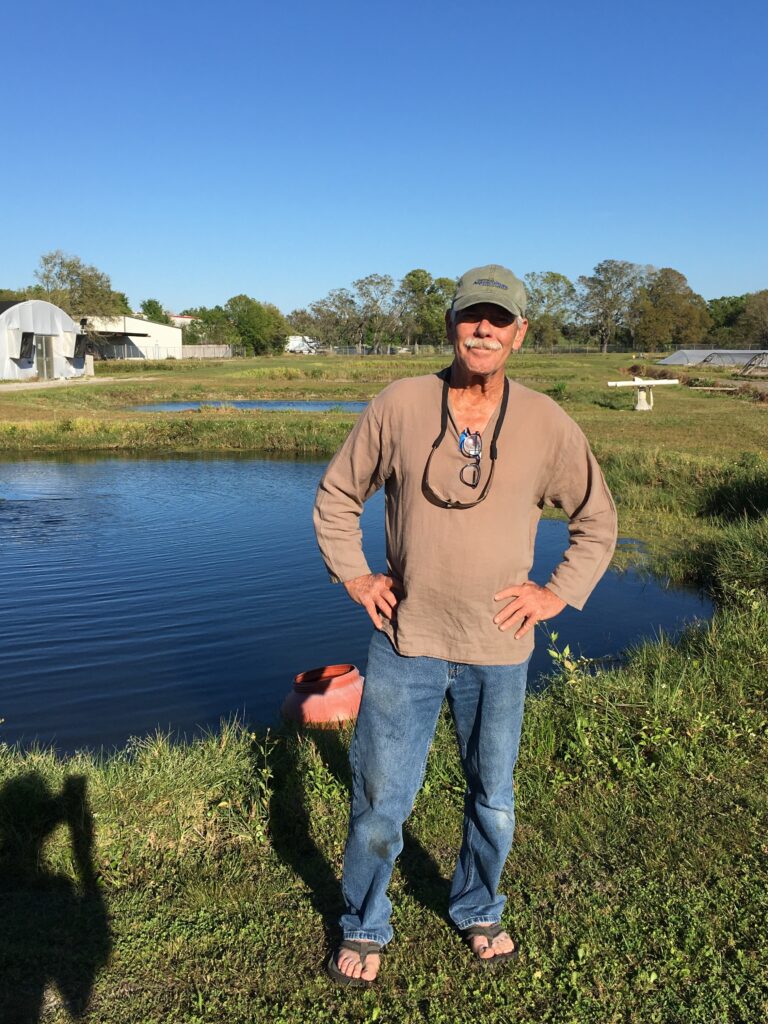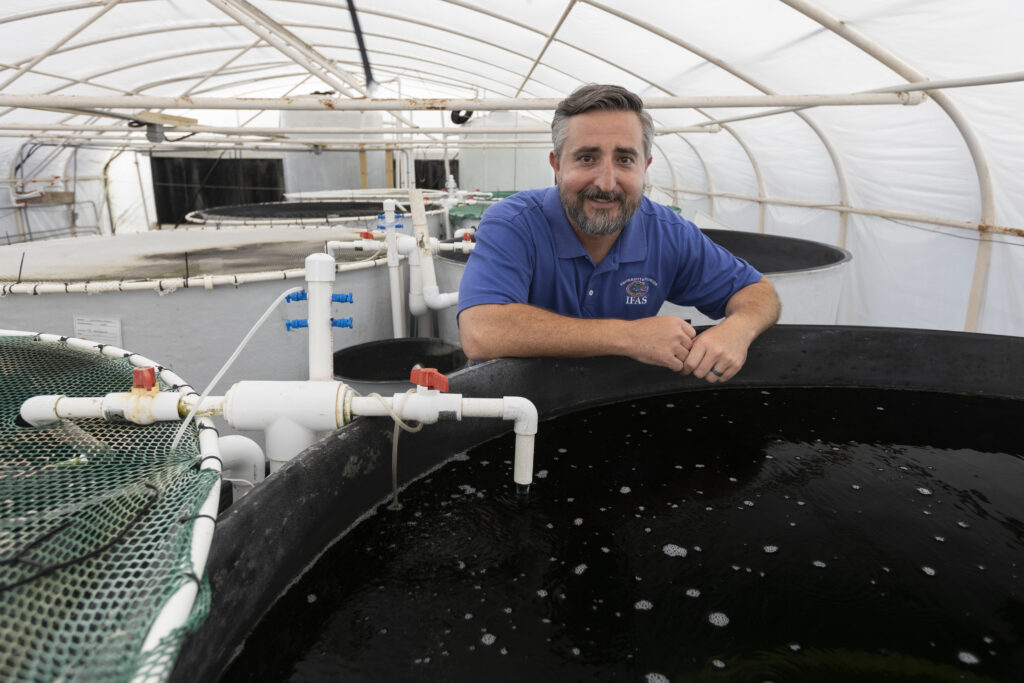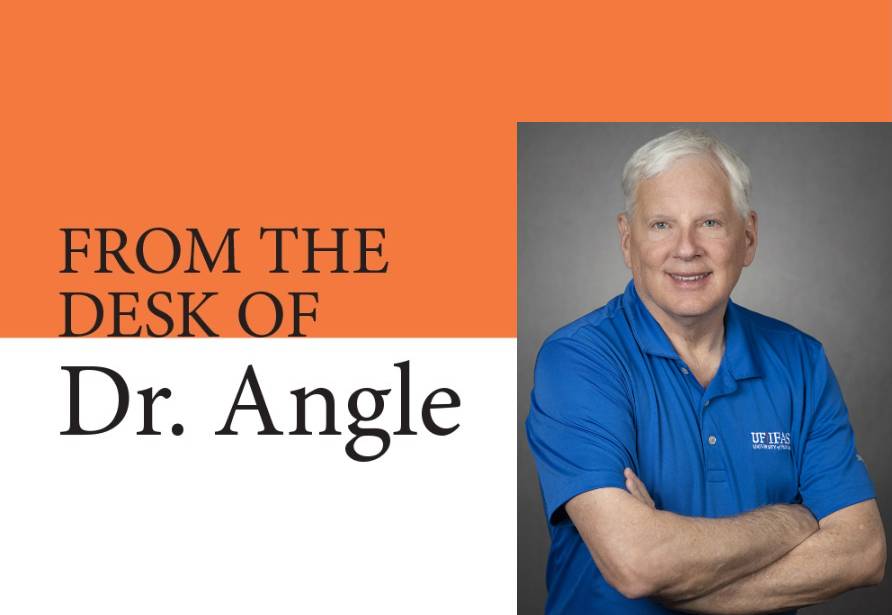By J. Scott Angle
jangle@ufl.edu
@IFAS_VP
Back in the early 1990s, aquaculture was a niche industry, a loosely connected group of largely self-taught producers, according to Marty Tanner, a longtime Florida aquaculture producer and leader.
Craig Watson and the founding of the UF/IFAS Tropical Aquaculture Laboratory (TAL) in Ruskin helped change that, Tanner said. The establishment of a scientific hub not only led to explosive discovery but a clearinghouse for dissemination of new knowledge. It’s much more an industry of evidence-based practices and less one of hit-and-miss tinkering.
TAL also helps regulators truly understand the industry. The relationships and trust Watson established with government agencies has shaped policy that gives producers access to inputs without which their farms would be in peril.
Watson is an industry icon who retired March 31 after nearly 27 years leading the lab he founded.
Yet there’s so much more that can be done, and that’s why I chose Matt DiMaggio to succeed Watson.
DiMaggio’s vision in short is to gain TAL recognition as the nation’s top academic aquaculture laboratory. He wants to do it by helping more people make a living off raising ornamentals, from farming food fish, and through restoring our marine environment.
DiMaggio wants those who are already doing this to make an even better living.
TAL is going to play a central role in a burgeoning sector of Florida agriculture. It is positioned to convert opportunity into results by providing the science to fuel existing trends—the popularity and constant appetite for new ornamental species, the immense potential of Florida sea- and land-based food fish production and the production aquaculture needed to support coral restoration and other ecological initiatives.
DiMaggio says the core of the lab will remain ornamental aquaculture. But when I visited for a two-day visioning session late last year, DiMaggio pitched a vision to build on that.
For example, he wants to add four more faculty to the current six. Although he’ll adapt according to resources and available talent, he foresees bringing on a molecular geneticist, an engineer, a nutritionist and an ecologist.
This will require space, so DiMaggio aims to double the size of TAL’s building square footage. More tanks, more labs, more space to do more things for fish farmers.
Leaders from Tanner to Jason Mathis at the Farm Bureau to Tiffany Conner of the Florida Aquaculture Association all support my choice. They know DiMaggio well from his scientific work at TAL for the past nine years, from the many industry events he participates in, and the close professional ties he has forged not only with producers but with regulators, research partners and funding agencies.
Under Watson’s leadership, TAL scientists saved stakeholders millions of dollars, and the Florida Tropical Fish Farms Association inducted him into their Hall of Fame.
DiMaggio will honor Watson’s legacy and yet build upon it. He’ll have tools like artificial intelligence and allies who believe science can reduce our 90 percent reliance on imported seafood.
He’ll have the benefit of lessons learned and the foundation built by a start-up founder. He has the energy, ambition and vision to carry TAL into a new era of growth for both the lab and for the industry it supports.
By improving how producers grow fish, a DiMaggio-led TAL can grow jobs, profits, and the health of our waters and the things that live in them.
J. Scott Angle is the University of Florida’s Senior Vice President for Agriculture and Natural Resources and leader of the UF Institute of Food and Agricultural Sciences (UF/IFAS).



